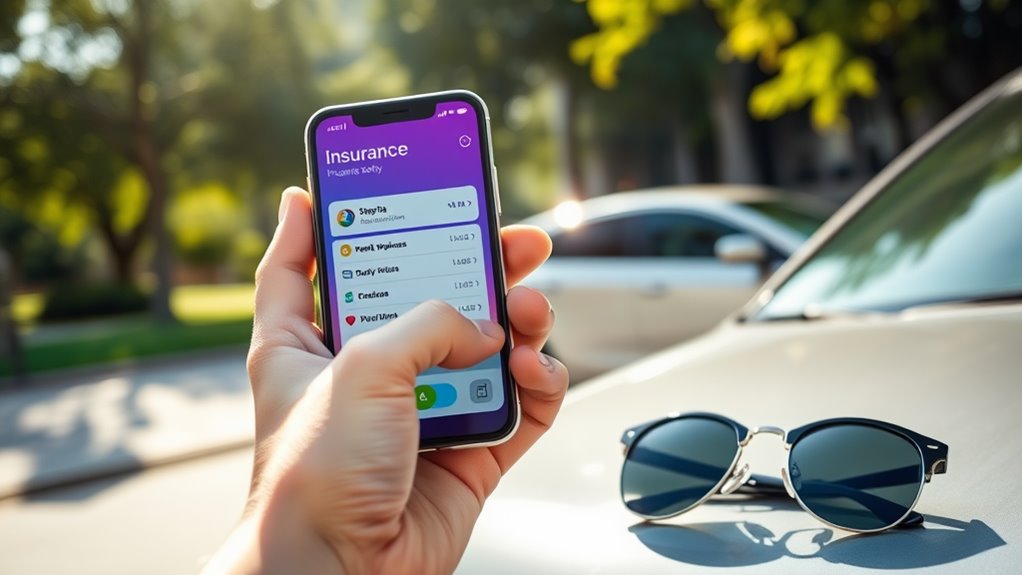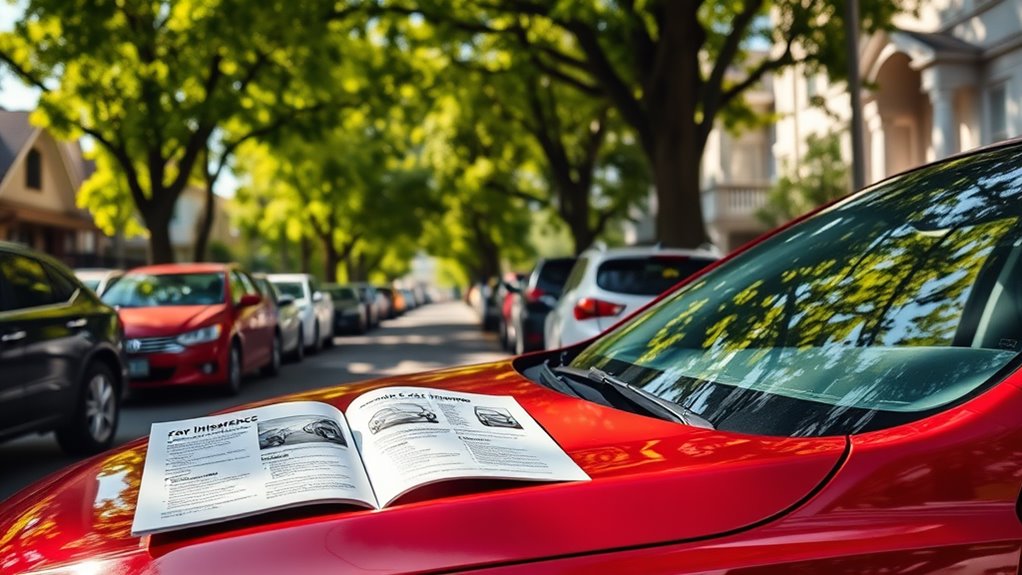It's worth considering whether typical auto insurance policies truly meet the needs of occasional drivers. Many assume that a standard policy suffices, but this isn't always the case. Various insurance options exist that can provide more tailored coverage for those who drive infrequently. Understanding these alternatives could save you money and guarantee you're adequately protected. What are these options, and how do they compare?
Have you ever wondered what insurance options are available for occasional drivers? Understanding these options can help you navigate the complexities of car insurance, especially if you find yourself behind the wheel less frequently than others. As an occasional driver, you'll be defined as someone who drives the insured vehicle less than 25% of the time or logs under a quarter of its mileage. While you enjoy coverage for damages you cause or incur, be mindful that your premiums could increase if you're at fault in an accident.
One of the most common ways to insure an occasional driver is by adding them to a primary policy. This is ideal for those who might drive a vehicle occasionally, making it a straightforward option for regular but infrequent use. Most insurers require all household members to be listed as occasional drivers, so ensure that family members are properly documented on your policy. Non-owner car insurance is specifically designed for individuals who don't own a vehicle but still need coverage.
Adding an occasional driver to a primary policy is a simple and effective way to ensure coverage for infrequent use.
However, if you often borrow cars instead of owning one, non-owner insurance could be a better fit. This type of coverage provides liability coverage and other options tailored for those who regularly use borrowed vehicles.
Rental car insurance is another feasible option. If you rent vehicles occasionally, you'll likely find low or no deductibles available when you opt for rental car insurance. This can be especially beneficial if you travel often or need a vehicle while your own is being repaired.
Additionally, if you drive infrequently, pay-per-mile insurance might appeal to you. This innovative insurance model allows you to pay based on the actual miles you drive, potentially lowering your costs considerably.
When evaluating your driving frequency, consider that some insurers recommend you shouldn't drive more than once a week as an occasional driver. Keeping your usage below 25% of the vehicle's total mileage is important.
Remember, definitions of occasional driving can vary among insurance providers, so maintaining regular communication with your insurer is critical to confirm compliance with their criteria.
Several factors influence the premiums you'll face as an occasional driver. Your driving record plays a considerable role; a poor record can lead to higher premiums.
Additionally, your age and experience level are considered, with younger or less experienced drivers often being viewed as higher risk. Past claims or gaps in your insurance history can also affect how much you pay.
If you're part of a household with multiple drivers, it's important to list family members as occasional drivers, even if they drive infrequently.
When comparing insurance options, traditional policies are common for those who drive frequently but aren't the primary users. Pay-per-mile insurance can be cost-effective for those who drive very little, while non-owner policies cater to individuals who borrow cars more regularly.
Rental insurance options are also available through rental companies, guaranteeing you're covered when you need a vehicle.
Conclusion
In summary, finding the right insurance for occasional driving is like maneuvering a winding road; it requires careful consideration of your unique needs. Whether you choose to add yourself to a primary policy, opt for non-owner coverage, or explore pay-per-mile options, each choice has its advantages. By understanding these options, you can guarantee you're adequately protected without overpaying. Remember, the right coverage can make all the difference in your driving experience, offering peace of mind on every journey.


